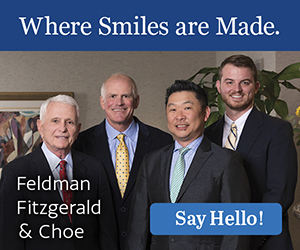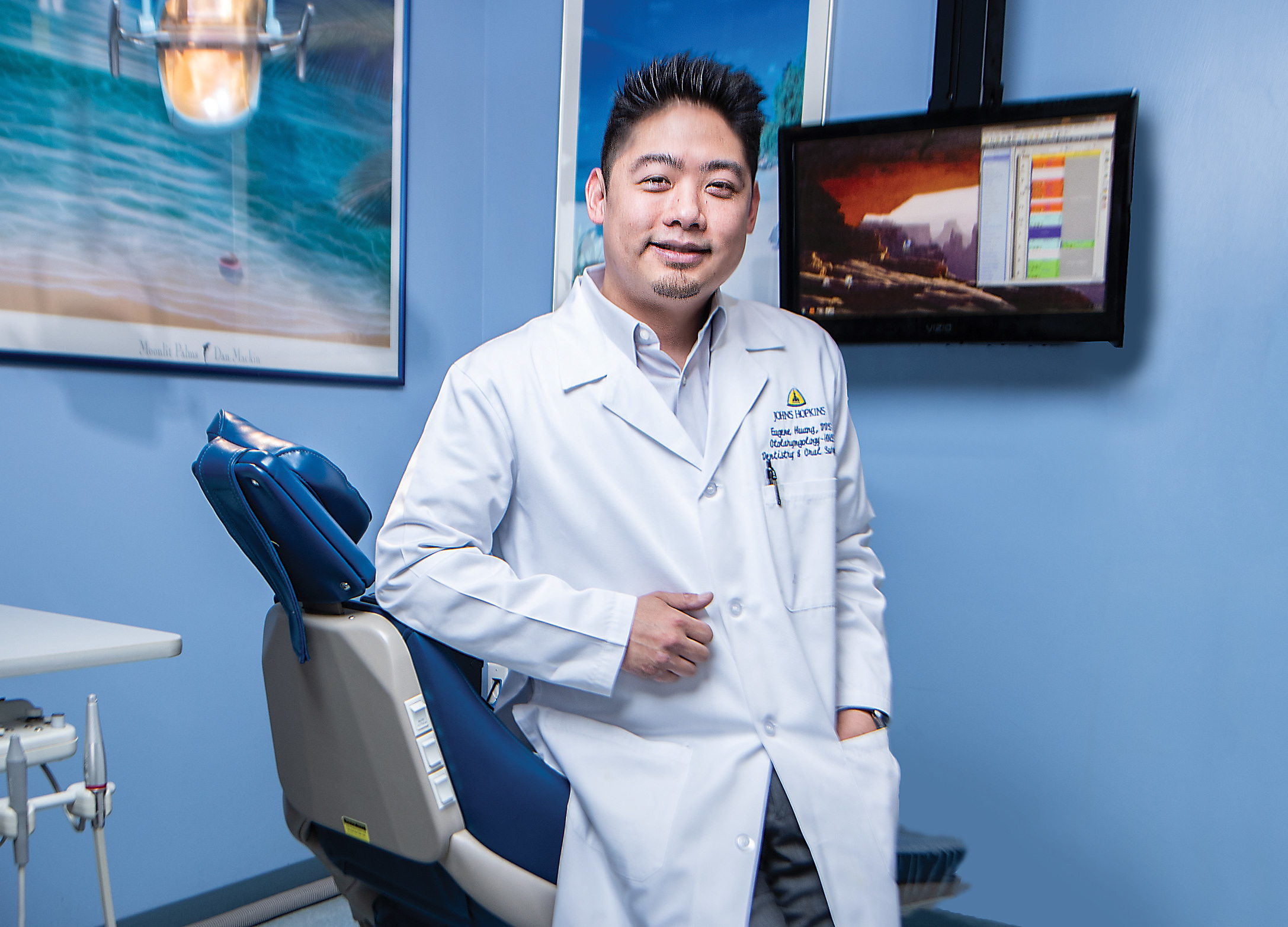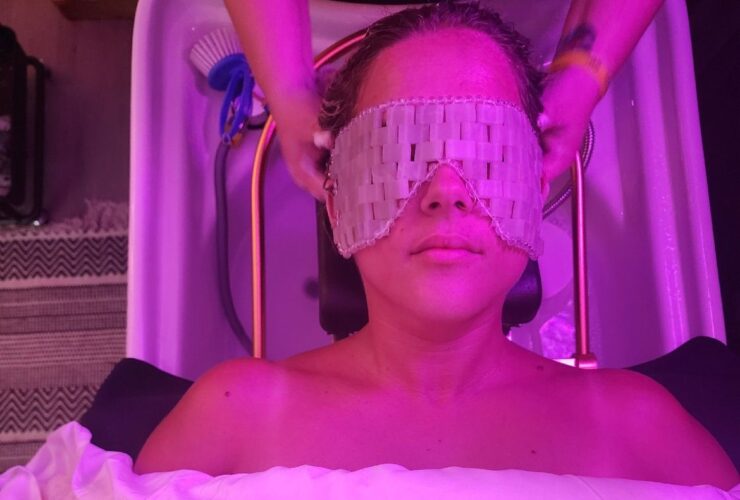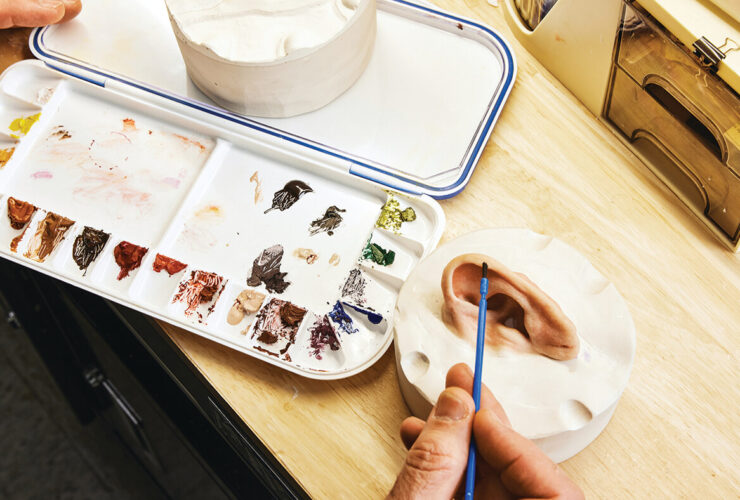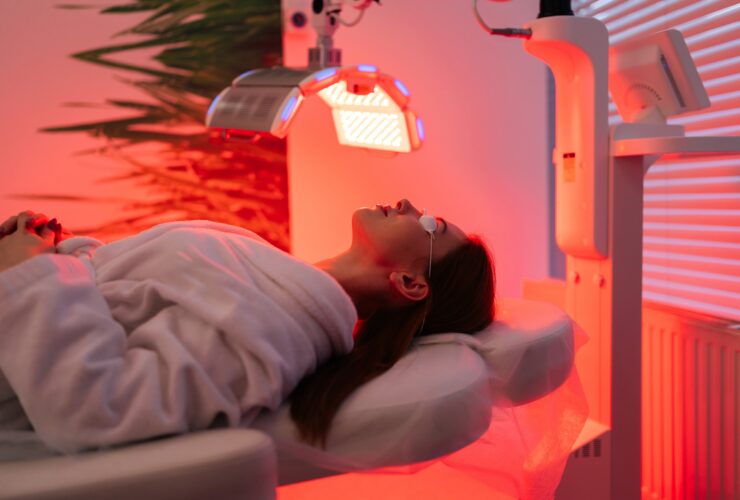Health & Wellness
Top Dentists 2018
We went looking for the most highly regarded D.D.S. practitioners in Baltimore and found 102 of them.
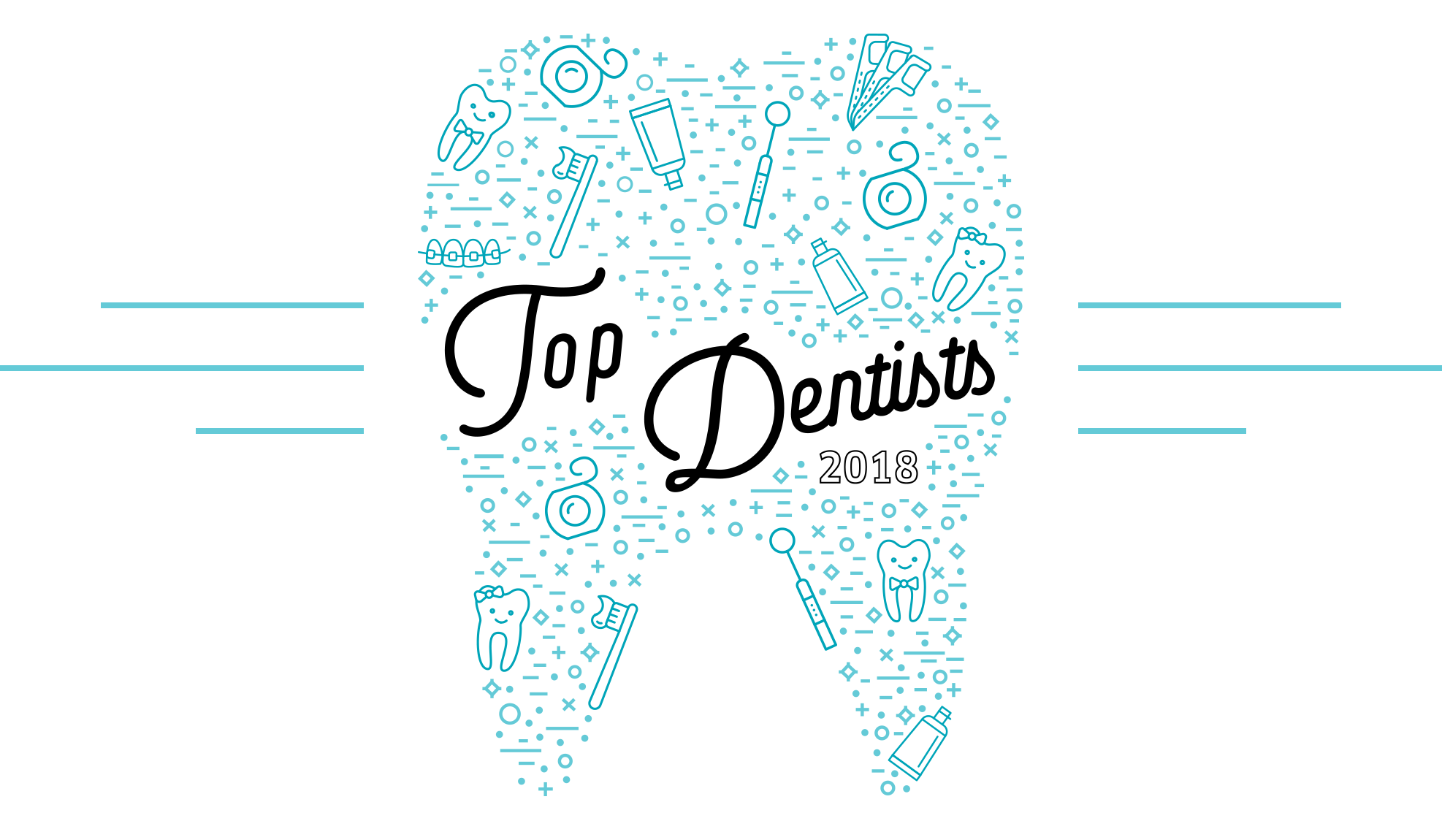
 There aren’t too many people out there who actually enjoy sitting in the dentist’s chair, but, whether it’s to deal with a painful molar or restore that Hollywood smile, we’d be foolish not to pay attention to our pearlies—so why not go to the very best? That’s where our closely followed, annual Top Dentists peer survey comes in, offering a handy resource to readers who want to do you-know-what: Find a talented dentist they also like. And, no, we didn’t throw dental picks at a dartboard to arrive at our list: We surveyed more than 2,000 dentists in Baltimore and the five surrounding counties over the course of several months to find out where they would send a member of their own family for each of eight dental specialties. Because most dentist appointments are a local destination, we then divided the winners geographically. The results are highly selective: Only those dentists with overwhelming peer support make the list. So, look closely—you’ll find your new dentist in here somewhere.
There aren’t too many people out there who actually enjoy sitting in the dentist’s chair, but, whether it’s to deal with a painful molar or restore that Hollywood smile, we’d be foolish not to pay attention to our pearlies—so why not go to the very best? That’s where our closely followed, annual Top Dentists peer survey comes in, offering a handy resource to readers who want to do you-know-what: Find a talented dentist they also like. And, no, we didn’t throw dental picks at a dartboard to arrive at our list: We surveyed more than 2,000 dentists in Baltimore and the five surrounding counties over the course of several months to find out where they would send a member of their own family for each of eight dental specialties. Because most dentist appointments are a local destination, we then divided the winners geographically. The results are highly selective: Only those dentists with overwhelming peer support make the list. So, look closely—you’ll find your new dentist in here somewhere.
Our Adviser | Dr. Erin Wolfson
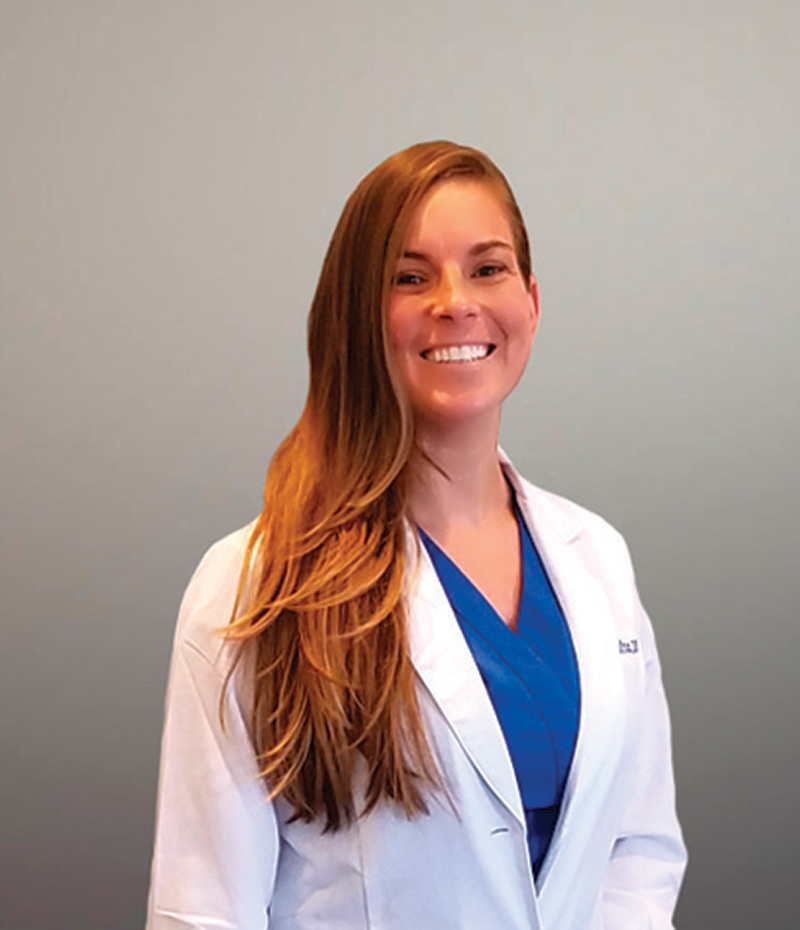 Our advisor for the 2018 Top Dentists peer survey was Dr. Erin Wolfson, owner of 70-year-old Hamilton Family Dentistry. She earned her doctorate of dental surgery at the University of Maryland, where she stayed to complete a residency in advanced education in general dentistry. She is an active member of the community and a member of the American Dental Association, Academy of General Dentistry, and Maryland State Dental Association. Serving Baltimore and surrounding areas, she also offers cosmetic and restorative dental treatments, as well as all aspects of general dentistry, and is certified in Invisalign treatment.
Our advisor for the 2018 Top Dentists peer survey was Dr. Erin Wolfson, owner of 70-year-old Hamilton Family Dentistry. She earned her doctorate of dental surgery at the University of Maryland, where she stayed to complete a residency in advanced education in general dentistry. She is an active member of the community and a member of the American Dental Association, Academy of General Dentistry, and Maryland State Dental Association. Serving Baltimore and surrounding areas, she also offers cosmetic and restorative dental treatments, as well as all aspects of general dentistry, and is certified in Invisalign treatment.
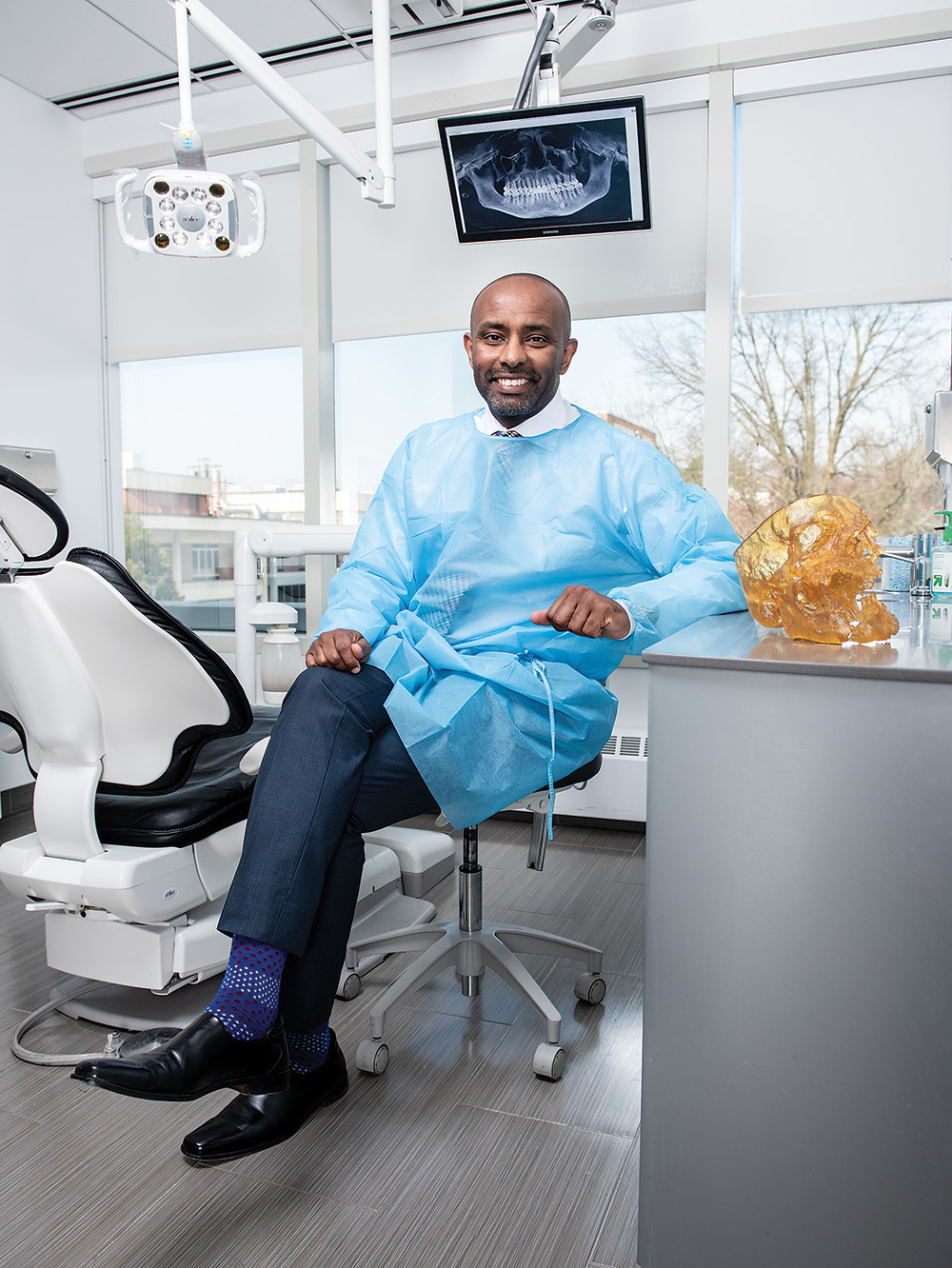
Ghassan Sinada | Prosthodontist
Oral History
Dentists look to swab testing for disease diagnosis and treatment.
By Tina Irgang
 Imagine this: A dentist takes a sample of the DNA in your saliva, possibly revealing a host of oral diseases—as well as some you may not associate with your mouth, from heart disease to cancer.
Imagine this: A dentist takes a sample of the DNA in your saliva, possibly revealing a host of oral diseases—as well as some you may not associate with your mouth, from heart disease to cancer.
That day isn’t quite here yet, but the profession is within spitting distance of a breakthrough, as DNA testing promises more potential than just at-home kits to learn about your ancestry or find long-lost relatives.
Since it’s becoming increasingly clear that your genes also hold the key to many aspects of your health, several Baltimore-area dentists have embraced an emerging kind of testing that they say can improve treatment of periodontal disease. They can even let patients know if they’re at risk for other conditions commonly associated with the condition, such as heart disease and diabetes.
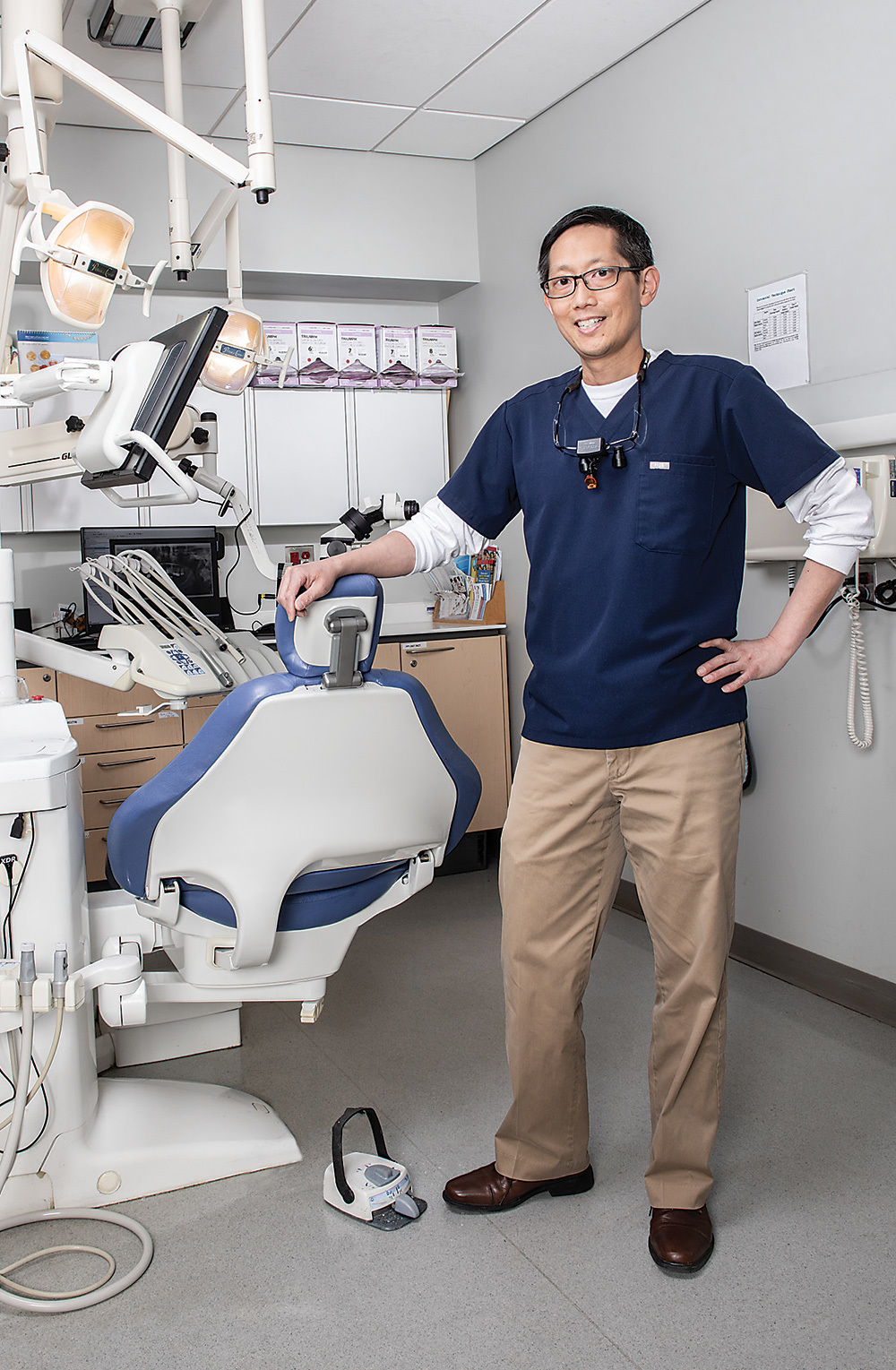
Dr. Harlan Shiau says more research is needed to prove the usefulness of salivary DNA testing in dentistry.
One of those dentists is Gary Bauman at the Baltimore Center of Advanced Dentistry in Lutherville, which began using salivary DNA testing about two years ago.
“We try to be cutting-edge, and this is the cutting edge for dental salivary diagnostics,” says Bauman. “We’ve been treating periodontal disease our entire careers, and we were successful sometimes, partially successful other times, and an abject failure in other cases.”
But salivary DNA testing has the potential to change that track record, he believes. “We now know that everything we do in the body has to do with the biome,” he says. “The human biome is living, it’s dynamic, it changes, and we need to deal with that in any disease process.”
Salivary DNA testing is, of course, still in its infancy. On its website, the American Dental Association states that, “No gene to date has been identified that has as large an impact on periodontal disease as do environmental influences, such as smoking or diabetes. While genetic testing holds potential for clinical application in the future, clinical measurements remain the best approach to assessment of caries and periodontal disease at this time.”
Dr. Harlan Shiau, postgraduate periodontal program director and clinical associate professor in the Division of Periodontics at the University of Maryland (UMD) School of Dentistry, agrees that more research is needed to prove the usefulness of salivary DNA testing in dentistry.
-

Leaders Of the Pack
Following are the three dentists in each specialty who received the most peer recommendations.
Endodontist
Bradley Trattner, Towson
Howard Cohen, Pikesville
Charles Mann, LuthervilleGeneral Dentist
Josh Weintraub, Stevenson
William Leboe, Federal Hill
Charles Fine, Owings MillsOral Maxillofacial Surgeon
Michael Schwartz, Owings Mills
(also drew the most peer recommendations in all specialties)
Julius Hyatt, Owings Mills
Leonard Spector, LuthervilleOral Pathologist
James Sciubba, Towson
John Basile, Baltimore
Karen Garber, BaltimoreOrthodontist
Larry Wang, Catonsville
Scott Nawy, Pikesville
Nicole Brummer, Roland ParkPediatric Dentist
Shari Kohn, Hunt Valley
Ed Ginsberg, Catonsville
Suzanne Wallengren, LuthervillePeriodontist
Barbara Lesco, Baltimore
Peter Joseph, Owings Mills
Karl Zeren, Towson
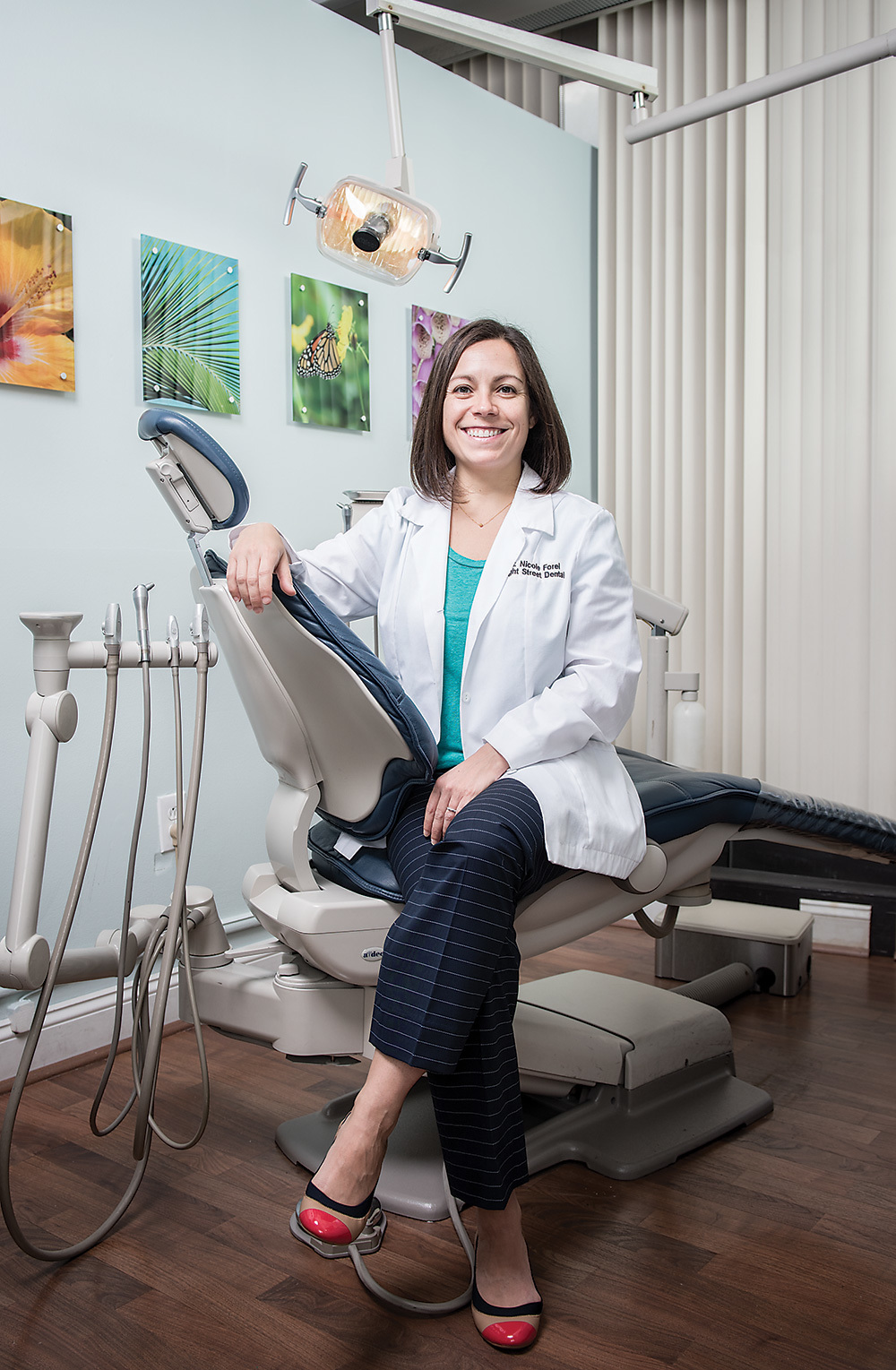
Nicole Forel | General Dentist
“That’s not to say that I don’t admire the potential there, because obviously the idea of being able to identify the patients who are going to be susceptible to periodontal disease is a Holy Grail for our specialty,” he says. “One of the questions that’s raised in my mind is, even after I’ve identified a susceptible patient, aside from perhaps wanting to see that patient more frequently, what would I do differently?”
However, dentists such as Bauman and James Kassolis of the Towson Center for Dental Implants and Periodontics say test results are already influencing their approach to treatment.
Several baltimore-area dentists have embraced an emerging kind of testing that they say can improve treatment of periodontal disease.
“The patient just rinses with a saline solution, spits into a tube, and we send it to a lab. They test for 11 different bacteria,” explains Bauman. “I have a patient who has terrible periodontal disease, and she was over the threshold for eight of the bacteria. So we can scale her teeth and clean underneath the gums, but if we don’t do something to get rid of those bacteria, the disease will never be under control. So, with this patient, we’ll use a laser to get into pockets and sterilize them. We’ll get her on a course of antibiotics to get those bacteria out.”
Kassolis agrees. “The specificity of the tests is at a level where we can definitely differentiate between the types of pathogens and the severity of the disease,” he says. “We need the testing for us to be effective, as far as what we’re doing and the result we’re getting.”
Because salivary DNA testing is still being studied, it is not commonly covered by insurance. At the Baltimore Center for Advanced Dentistry, the typical out-of-pocket cost for patients is $150, says Bauman. On the other side of the cost-benefit scale, however, salivary DNA testing could have considerable advantages for patients even beyond the treatment of periodontal disease.
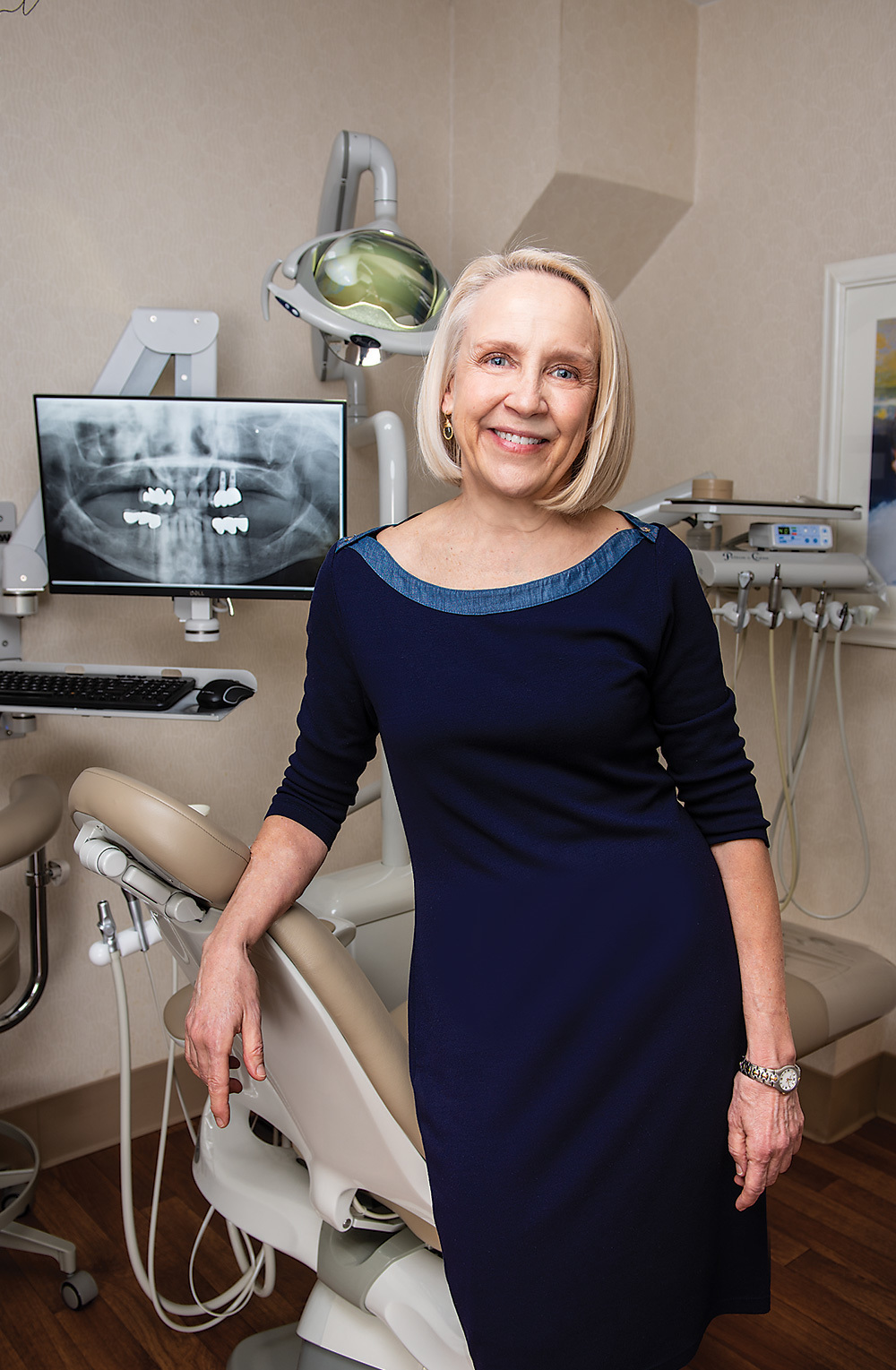
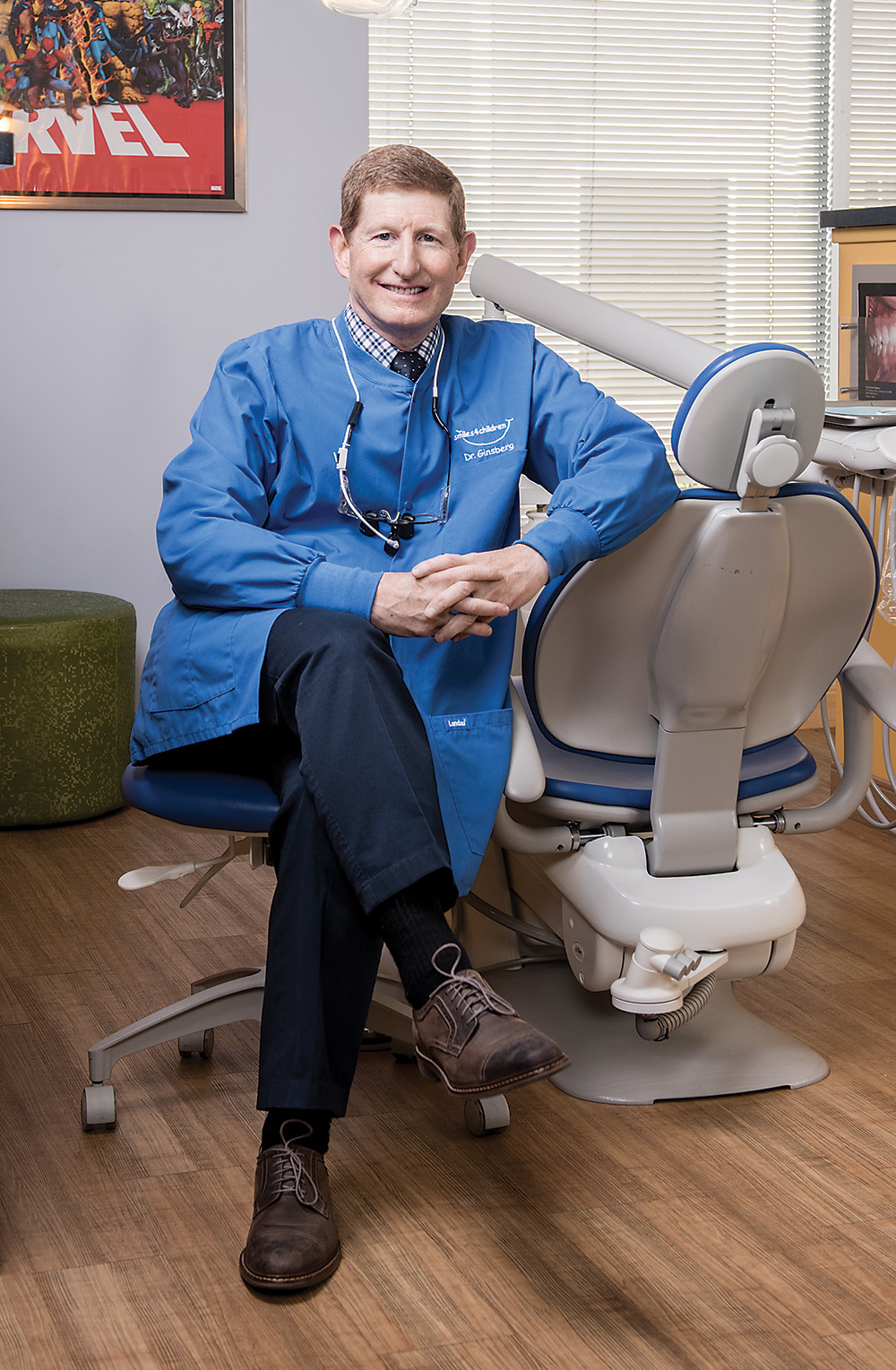
DENISE MARKOFF | General Dentist and Edward L. Ginsberg | Pediatric Dentist
“There is a direct correlation between periodontal disease and heart disease,” says Kassolis. “The same bacteria that cause periodontal disease cause plaque formation in the arteries of the heart.” He adds that periodontal disease is similarly linked with diabetes, and perhaps even with early onset pancreatic cancer.
So what if salivary testing could alert patients to the possibility that they are also suffering from these other conditions?
Again, UMD’s Shiau urges caution. “There’s the potential to misinterpret the findings without proper genetic counseling,” he says. “The fear is that it can generate undue anxiety in patients.”
But DNA testing at your dentist’s office could serve as the first step in further evaluation, Bauman notes. And it could catch patients who see their dentist every six months but may not have seen their family physician in years.
“We can tell you’re at high risk for heart disease, even though your blood values aren’t showing it yet, or you’re pre-diabetic,” he says. “Then maybe we can refer the patient to a physician to treat it. The oral DNA testing we have right now is just the very tip of the iceberg in terms of what dentists will be responsible for.”

